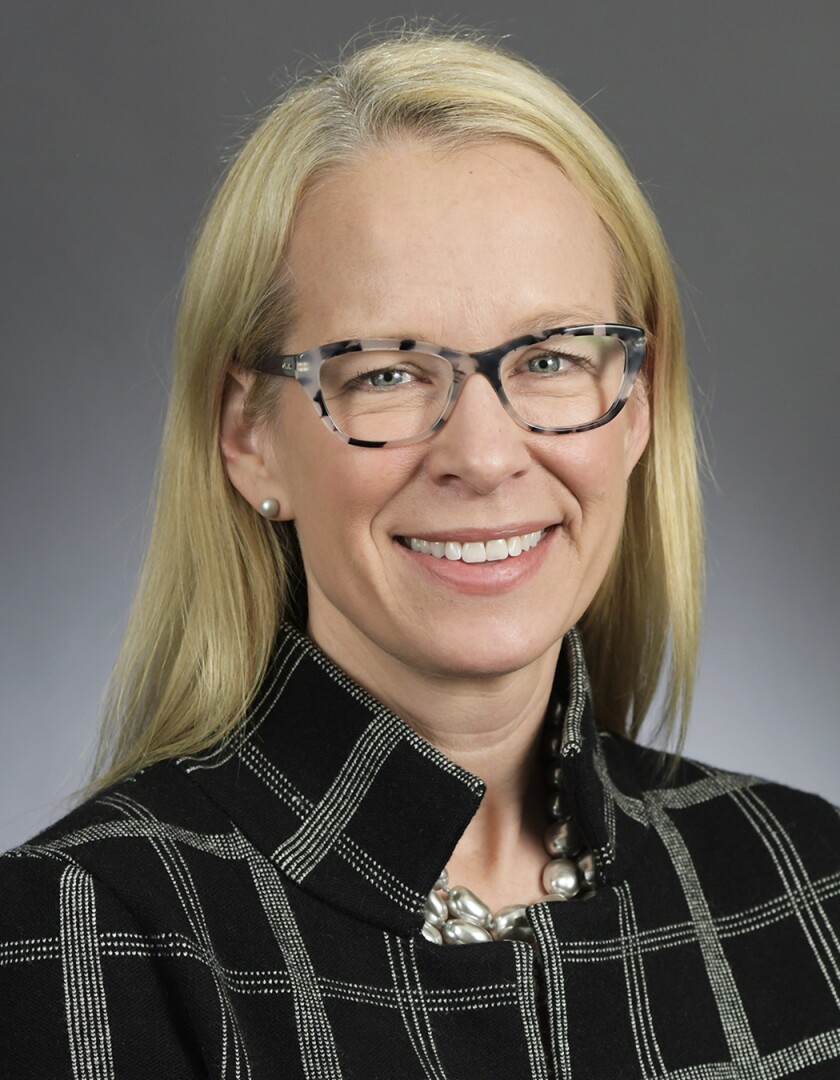ROCHESTER, Minn. — Though demand for abortion in Minnesota is expected to rise, Minnesota's largest health systems either oppose or decline to specifically answer whether they will provide elective abortion services.
Forum News Service reached out to representatives from Allina Health, Essentia Health, Fairview Health Services, HealthPartners, Mayo Clinic, and Sanford Health, and asked if they would provide elective abortion care. Just two providers addressed the provision of abortion by name, and both were opposed to providing the procedure.
ADVERTISEMENT
The subject arose following a recent request by Planned Parenthood North Central States President and CEO Sarah Stoesz for help from clinics and hospitals beyond the eight specialty clinics currently offering elective abortion care in the state.
"We are doing what we can to step up and to take care of our providers and all of our staff so that they don't burn out, but it's a difficult situation," Stoesz .
"It should not be just on the backs of Planned Parenthood and the independent abortion clinics in Minnesota to take care of the influx of people that will be needing our care. And I am hopeful that we will begin seeing ... health systems stepping into the breach."
Duluth-based Essentia Health, with 85 facilities, was one of the health systems that responded to Forum News Service's request.
"Guided by our Benedictine and Catholic heritage ... (Essentia) does not provide abortions at any of our hospitals or clinics," Essentia said in a statement.
The health system said "a termination of pregnancy is sometimes necessary to save the life of the mother," in consultation with an ethics committee.
Since those remarks, has mandated that no hospital in America can deny abortion in emergency situations where the mother's life is at risk.
ADVERTISEMENT
Sioux Falls-based Sanford Health also voiced opposition, with a provision to study the issue.
"While as a matter of policy we do not offer elective abortions we are carefully evaluating any potential impact of the Supreme Court decision on the ability of our providers to deliver medically necessary care to our patients," Sanford Health said in a statement.
The remaining major Minnesota health systems contacted by FNS — Health Partners, Fairview Health, Allina Health and Mayo Clinic — either did not respond or declined to address abortion care by name.
Bloomington-based HealthPartners did not respond to multiple attempts seeking a reply to the request by Stoesz, while Fairview, Allina and Mayo all returned statements in support of doctor-patient autonomy and reproductive health care but which did not mention the decision to terminate a pregnancy.
Advocates say hospitals should provide abortion care
In relegating abortion to isolated, freestanding clinics concentrated in the Twin Cities metro and often populated with protesters, advocates say the state's health systems are out of step with the views of their practitioner's member specialty organizations.
In recent weeks, including The American Medical Association and the American College of Obstetrics & Gynecology, which says that "abortion is an essential component of comprehensive, evidence-based health care."
Nationally, Kaiser Permanente, a California-based provider with hospitals in in eight states, and publicizes the services in their communications. Hospitals and clinics are allowed to offer abortion in Minnesota, overturning state law that only doctors can provide abortion care services expanding the pool of clinical professionals allowed to serve patients in need.
ADVERTISEMENT
"They could and they should," says Megan Peterson, executive director Gender Justice, of the potential for the state's private health systems to provide abortion care as part of routine reproductive health care services.
"The actual procedure for a first trimester abortion is the same as for miscarriage management ... yet if you elect to get an abortion it's very difficult to get your regular OB-GYN to provide that care, you have to go to a special clinic."

"I think that has to change," says state , a practicing OB-GYN. "OB-GYNs specifically have been able to avoid the fact that this is part of reproductive health care. That's partially because of the success of the antiabortion movement in creating a lot of shame ... making it difficult to get the procedure done in our hospitals."
"There doesn't seem to be an accepted philosophy that it's a part of health care," said Jema Turk, Director of Evaluation for the Ryan Residency Training Program at the University of California, San Francisco, which oversees the integration of abortion training within academic hospitals.
"It's due to the fact that it's super controversial and hospital boards tend to be slightly more conservative than the rest of the country. They do not want to invite controversy. They stay away from it. They won't stand up for it."
Advocates believe that may change, however, given the interstate dynamics and evolving perceptions of abortion post Roe.
"As we look at the changing landscape in the United States, Minnesota is going to have to absorb a lot of care of people in neighboring states and farther away, and we're going to need more providers of that care," Morrison said.
ADVERTISEMENT
"I feel more optimistic that that is going to happen. A lot of what were previously considered to be conservative medical organizations have stepped forward since the Roe decision and said this can't stand, this is an unsafe interference in medical care ... So I do feel hopeful that our health care organizations are going to be part of the solution here in Minnesota."














